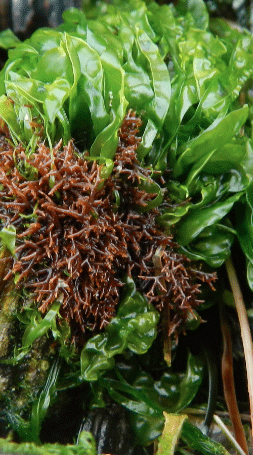New Delhi: Union Government has proposed to set up model demonstration farm in Chilika Lake for cultivation of seaweeds.
Economically Important Seaweeds has lot of commercial value and the Farm will be over One Hectare.
Gracilariaverrucosa and Ulva linza or Ulva prolifera will be cultivated in the lagoon, officials sources said.
Technology Information, Forecasting and Assessment Council (TIFAC) of India has taken up the initiative for setting up seaweed Mission. Apart from Odisha, Andhra Pradesh, Karnataka, Tamil Nadu and Gujarat have also been listed for seaweed cultivation.
Out of the global seaweed production of ~ 32 million tons fresh weight valued around 12 billion US dollars. China produces ~57 %, Indonesia ~28% followed by South Korea, whereas India is having a mere share of ~0.01-0.02%.
Despite several advantages, commercial seaweeds cultivation has not been taken place in the country at an appropriate scale, as being practiced in South-East Asian countries.
By an estimate, if cultivation is done in ≈10 million hectares or 5% of the EEZ area of India, it can provide employment to ~ 50 million people; set up new seaweed industry; contribute to national GDP.
Looking at the immense latent and untapped potential of seaweeds in India, TIFAC had brought out a report on Seaweeds in 2018, which besides highlighting the huge potential also drew out a road map for implementations of the recommendations.
The report, brought out in coordination with CSIR- CSMCRI, Bhavnagar, and other stakeholders such as Central Marine Fisheries Research Institute (CMFRI), CSIR – Central Food Technological Research Institute (CFTRI) and Central Institute of Fisheries Technology (CIFT) also strongly recommended launching a mission on seaweeds.
This recommendation was discussed in the meeting of the TIFAC Governing Council and it was decided to prepare a Detailed Report for launching the Mission.
The detailed report has now been prepared and finalized in consultation with all the stakeholders namely: CSIR- CSMCRI, Central Marine Fisheries Research Institute (CMFRI), CSIR – Central Food Technological Research Institute (CFTRI) and Central Institute of Fisheries Technology (CIFT).
Establishment of seaweed nurseries for supplying seed material for large scale farming of economically important seaweeds in the country Establishment and demonstration of processing technologies/recipes for edible seaweeds in line with consumer acceptability or cultural food habits
Dried flakes, dried powder, dried sheets or processed dried sheets with additional flavour meeting the acceptance/perceptions of people for seaweed-based proteins as an alternate to meet food supplements and feed supplements.


